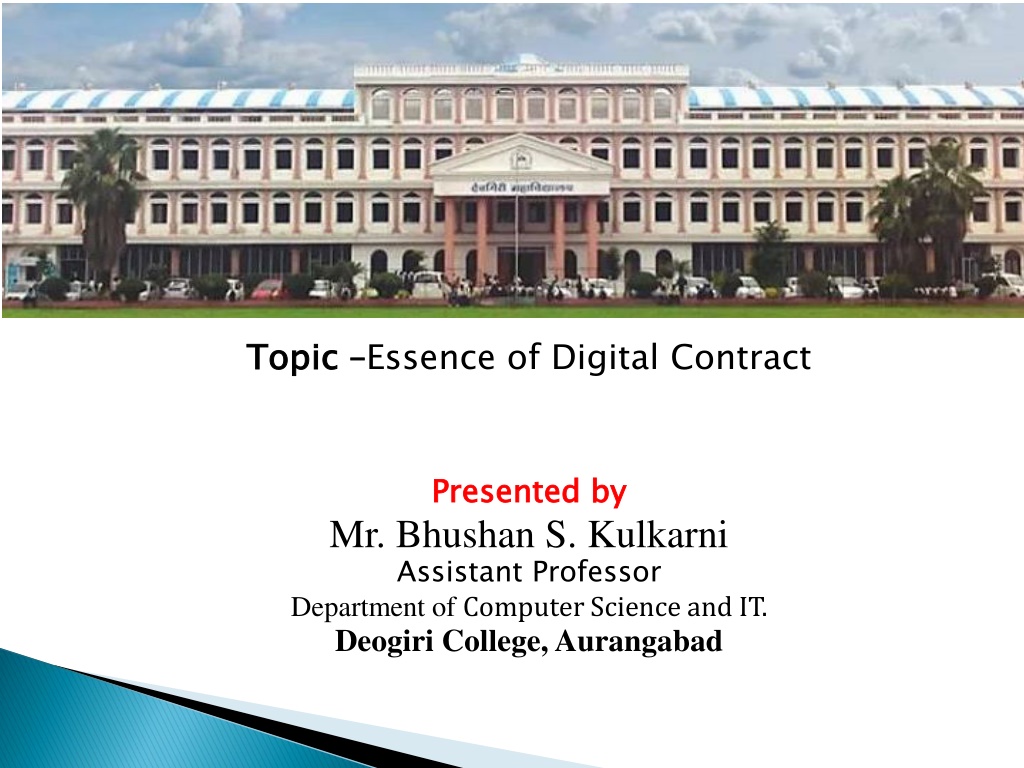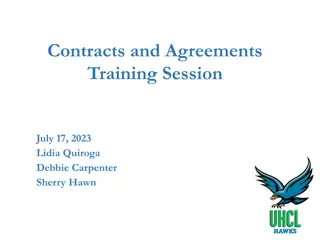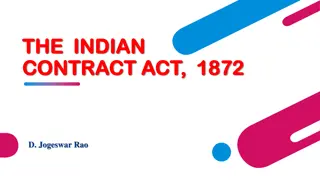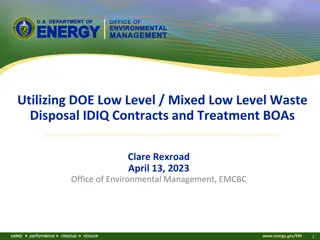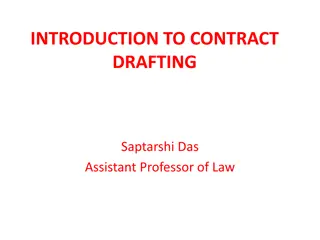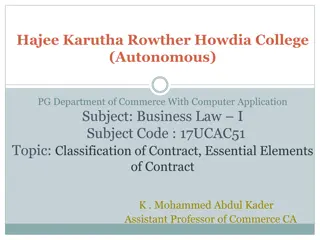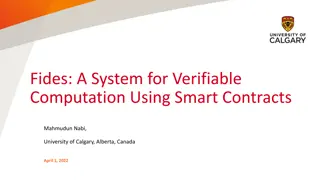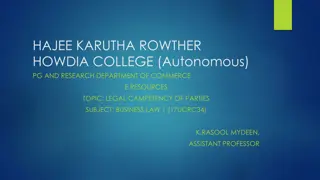Understanding Essential Elements of Digital Contracts
Digital contracts, like traditional contracts, have specific requirements for validity. This lecture presented by Mr. Bhushan S. Kulkarni covers key aspects such as making an offer, acknowledging the offer, and legal considerations for enforceability. The process of forming electronic contracts through methods like email, website forms, and online agreements is also discussed.
Download Presentation

Please find below an Image/Link to download the presentation.
The content on the website is provided AS IS for your information and personal use only. It may not be sold, licensed, or shared on other websites without obtaining consent from the author. Download presentation by click this link. If you encounter any issues during the download, it is possible that the publisher has removed the file from their server.
E N D
Presentation Transcript
Topic Topic Essence of Digital Contract Presented by Presented by Mr. Bhushan S. Kulkarni Assistant Professor Department of Computer Science and IT. Deogiri College, Aurangabad
Previous lecture we studied about traditional contract as well as electronic contract i.e. also referred as digital contract Like Traditional contract Digital contract also requires some essential things that are explained in this lecture. Let us start with necessary things for digital contracts.
1. An offer requirements to be made In many contacts (whether online or conventional) the offer is not made directly one-on-one. The consumer browses the available goods and services showed on the seller s website and then chooses what he would like to purchase. The offer is not made by website showing the items for sale at a particular price. This is essentially an invitation to offer and hence is revocable at any time up to the time of acceptance. The offer is made by the customer on introduction the products in the virtual basket or shopping cart for payment. 1. An offer requirements to be made
2. The offer needs to be acknowledged As stated earlier, the acceptance is usually assumed by the business after the offer has been made by the consumer in relation with the invitation to offer. An offer is revocable at any time until the acceptance is made. Processes available for forming electronic contracts include: I. E-mail: Offers and acceptances can be exchanged entirely by e-mail, or can be collective with paper documents, faxes, telephonic discussions etc. 2. The offer needs to be acknowledged
II. Web Site Forms: The seller can offer goods or services (e.g. air tickets, software etc.) through his website. The customer places an order by completing and communicating the order form provided on the website. The goods may be actually delivered later (e.g. in case of clothes, music CDs etc.) or be directly delivered electronically (e.g. e-tickets, software, mp3 etc.). III. Online Agreements: Users may need to take an online agreement in order to be able to avail of the services e.g. clicking on I accept while connecting software or clicking on I agree while signing up for an email account.
3. There has to be legal consideration Any contract to be enforceable by law must have legal consideration, i.e., when both parties give and receive something in return. Therefore, if an auction site eases a contract between two parties where one Ecommerce Legal Issues such as a person provides a pornographic movie as consideration for purchasing an mp3 player, then such a contract is void. 3. There has to be legal consideration
4. There has to be an intention to create lawful relations If there is no intention on the part of the parties to create lawful relationships, then no contract is possible between them. Usually, agreements of a domestic or social nature are not contracts and therefore are not enforceable, e.g., a website providing general health related data and instructions. 4. There has to be an intention to create lawful relations
5. The parties must be able to contract. Contracts by minors, lunatics etc. are void. All the parties to the contract must be lawfully competent to enter into the contract. 6. There must be free and unaffected consent Consent is said to be free when there is absence of coercion, misrepresentation, undue influence or fraud. In other words, there must not be any agitation of the will of any party to the contract to enter such contract. Usually, in online contracts, especially when there is no active real-time communication between the contracting parties, e.g., between a website and the customer who buys through such a site, the click through process ensures free and genuine consent. 5. The parties must be able to contract. 6. There must be free and unaffected consent
7. The object of the contract need to be lawful A valid contract presumes a lawful object. Thus a contract for selling narcotic drugs or pornography online is void. 8. There must be conviction and possibility of performance A contract, to be enforceable, must not be ambiguous or unclear and there must be possibility of performance. A contract, which is impossible to perform, cannot be enforced, e.g., where a website promises to sell land on the moon. 7. The object of the contract need to be lawful 8. There must be conviction and possibility of performance
